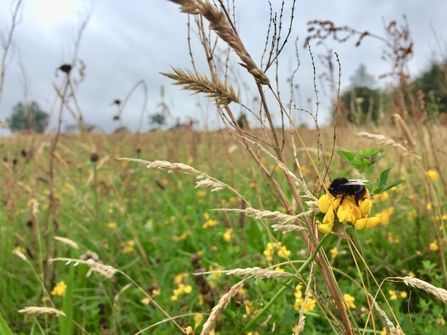For five years, the UK Government had repeatedly approved the "emergency" use of the bee-killing pesticide on sugar beet, at the request of British Sugar and the NFU. However following extensive lobbying and campaigning from The Wildlife Trusts - including a petition with over 300,000 signatures - the government has finally upheld the ban, marking an end to the pesticide's devastating impact on British wildlife.
This marks a pivotal moment in tackling the sugar industry's reliance on toxic chemicals that are used heavily across East Anglia in the production of sugar beet, yet pollute our soils and rivers and kill countless bees and pollinators.
Ben McFarland, Director of Wildlife Conservation & Recovery at Suffolk Wildlife Trust, said: “For years, experts and more than 300,000 wildlife supporters - including many in Suffolk -have called for the ban against neonicotinoids to be upheld and The Wildlife Trusts are we are delighted with this decision.
"As an agriculatural county, this outcome is a vital one for Suffolk's wildlife.
“There is simply no place in modern sustainable agriculture for highly toxic pesticides that kill bees and poison soils and rivers. Neonicotinoids were originally banned in the UK in 2017 but were granted repeat authorisations for use, despite explicit guidance against their approval.

